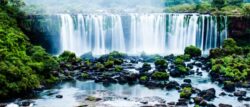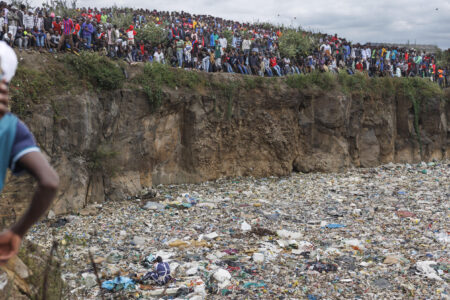Paraguay: A Land of Opportunity
The President of Paraguay, Horacio Cartes, addressed a lecture held by the New York University last year and hailed his country’s transformation from a corrupt Latin American backwater to an untapped vein of economic promise and registered his self-serving prophecy, moving from businessman to head of state.
After centuries of isolation and experiments in tyranny, Paraguay is having its moment. Construction cranes loom over an emerging skyline in the capital city of Asunción, foreign investors are buying up swaths of land to raise livestock or grow crops, and the government has begun to deliver a bit of transparency. With nearly 7 million people, Paraguay is a small and open economy. Over the past decade, the Paraguayan economy grew at an average of 5%, a level of growth higher than that of its neighbours.
With nearly 7 million people, Paraguay is a small and open economy. Over the past decade, the Paraguayan economy grew at an average of 5%, a level of growth higher than that of its neighbours, although very volatile. This was due mainly to its heavy reliance on natural resources. Electric energy through the hydroelectric binationals Itaipu and Yacyreta, along with the highly productive and modern agriculture and livestock production are leading economic activities, having represented more than 60% of all Paraguayan exports in 2015.
Paraguay’s Natural Beauty
One of the main issues that Paraguay must manage are the resources in hand. A typical summer can devastate the country and its wildlife, And with Tourism on the rise, stability and preservation of its resources are vital to the development of the economy. A typical summer drought, alongside the Pilcomayo River, black vultures flew over a shrinking pond where a group of crocodilian reptiles, seek refuge. Water from the river, which divides Paraguay and Argentina in the area of the Gran Chaco, was scarce. Because of the lack of water, the governments of Paraguay and Argentina have built canals to control irregular flowing.
Latin America, is bordered and split by rivers. Because of its forbidding geography and decades of dictatorial rule, it has remained fairly isolated from its neighbours. In a region known for its natural wonders, Paraguay has the Chaco, a hot, dry, and thorny forest that covers roughly 60 percent of the country, in the north and west. It is sometimes referred to as the Green Hell. Paraguayans were ranked as the happiest people on earth, according to a 2014 Gallup poll that measured positive experiences.
Cartes’s five-year term ends in 2018 and speculation that he will seek a second term—which would require a change in the law. Cartes seems intent on pushing forward with his agenda. He recently demanded that public agencies divulge data on salaries, qualifications, and level of training, an effort to rid government payrolls of unqualified and no-show employees, known as planilleros. Union leaders called Cartes’s plan a populist ploy that would hurt workers’ rights.
Cartes’s minister of Industry and Commerce, Gustavo Leite defended Cartes’s actions, telling reporters it was important that Paraguayans learn who abused the public payroll. “I am proud to work for a president who doesn’t steal,” he added.
Nevertheless, progress has been made on the social front, with a series of reforms in this area, including free access to primary health care and basic education and the expansion of conditional transfer programs to benefit vulnerable populations. However, the high levels of poverty and inequality remain major problems for development.
A long but good article full of research, well worth a read.
Can Paraguay Escape Decades of Despotism, Ineptitude, and Corruption? Bloomberg News






